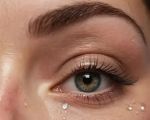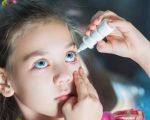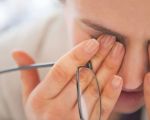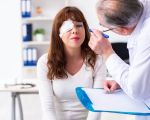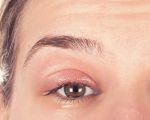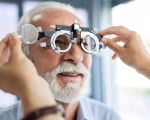How to Keep Your Eyes Healthy While Traveling Frequently
As someone who often finds myself flying from one city to another, I’ve learned the hard way how challenging it can be to maintain good eye health during long flights. For a long time, I experienced eye dryness, irritation, and occasional blurred vision, especially after those lengthy cross-country or international flights. It wasn’t until I started paying closer attention to my eye care that I realized just how much the dry, recycled air in the cabin could affect my eyes. If you’re a frequent flyer like me, you know the importance of eye health and the impact flying can have on your vision. I’m here to share the tips I’ve learned to help keep your eyes in great shape, no matter how many miles you’re logging in the air.
Why Airplane Cabin Air Affects Your Eyes
Before diving into the practical tips, it’s important to understand why airplane cabins are so tough on your eyes. One of the main reasons is the low humidity levels on planes. At cruising altitude, the humidity inside the cabin is often reduced to around 10-20%, which is much lower than the typical indoor environment, which tends to be around 40-60% humidity. This dry air can cause your eyes to lose moisture quickly, leading to dryness, irritation, and discomfort.
On top of that, the constant circulation of air can make the eyes more prone to irritation from dust and other particles. If you wear contact lenses, the situation can worsen because the lenses tend to absorb the moisture in your eyes, further exacerbating dryness. For someone like me, who relies on contact lenses during my travels, the combination of dry cabin air and the lens material was a recipe for discomfort.
Essential Eye Health Tips for Frequent Flyers
Having dealt with my own eye health issues on flights, I’ve compiled a list of helpful tips that have made a huge difference for me. These simple strategies can help you avoid common eye problems during air travel, making your journey more comfortable and enjoyable:
- Stay Hydrated: One of the most important things you can do to protect your eyes during a flight is to drink plenty of water. Dehydration exacerbates eye dryness, so sipping water regularly throughout the flight is essential. Avoid excessive caffeine or alcohol, as these can increase dehydration, leaving your eyes feeling even drier.
- Use Lubricating Eye Drops: If you suffer from dry eyes while flying, consider using preservative-free lubricating eye drops. These drops mimic natural tears and can help relieve the dryness and irritation caused by the cabin’s dry air. I always carry a small bottle of eye drops in my bag and use them several times during a flight to keep my eyes moist.
- Wear Glasses Instead of Contacts: If you wear contact lenses, try switching to glasses while flying. Contacts can exacerbate dryness in low-humidity environments, leading to discomfort and possible irritation. When I switched to glasses for flights, I noticed a significant reduction in eye irritation and dryness.
- Use a Humidifier: Consider using a portable travel-sized humidifier in your seat area, especially during longer flights. This can help keep the air around you more comfortable and less dry. Alternatively, a mist spray for your face and eyes can also help hydrate your skin and eyes.
- Take Regular Breaks: If you’re glued to a screen during your flight, be sure to take regular breaks. The 20-20-20 rule is a great guideline: every 20 minutes, look at something 20 feet away for at least 20 seconds. This helps reduce eye strain and prevents fatigue from staring at a screen for too long.
- Keep Your Eyes Closed: While this may sound simple, closing your eyes for a few minutes during the flight can help reduce irritation and give your eyes a break. When I feel my eyes drying out, I find that closing them for a short period can really help rejuvenate them.
Personal Story: How I Improved My Eye Comfort While Flying
I’ll never forget the first time I realized just how much flying was affecting my eyes. It was a long international flight, and halfway through, I started feeling a sharp, gritty sensation in my eyes. They were red, dry, and I could barely keep them open. By the time I landed, I was in so much discomfort that I couldn’t enjoy the rest of my day. After that experience, I started researching ways to protect my eyes during flights.
Initially, I thought about simply using over-the-counter eye drops, but I wasn’t sure how much they would help. So, I decided to take a multi-faceted approach. I made sure to drink water regularly, switched to glasses for flights, and used lubricating eye drops every hour. The difference was immediate. On my next flight, I felt significantly better. The dryness and irritation were much more manageable, and I could actually enjoy the rest of my travel. It was a game-changer, and it’s something I continue to do on every flight.
Why You Shouldn’t Skip Regular Eye Exams for Frequent Flyers
If you fly often, regular eye exams are essential. Traveling frequently can sometimes exacerbate existing vision problems, especially if you’re experiencing discomfort related to dryness, blurry vision, or eye strain. Eye exams allow your optometrist to assess the overall health of your eyes, recommend the right eyewear, and provide you with tailored advice on managing your eye health while traveling.
For example, if you’re a contact lens wearer, an eye exam can help determine whether your lenses are still the best fit or if you need a different type of lens to minimize dryness and irritation. I make sure to schedule a yearly eye exam, which has helped me maintain good eye health during my travels.
Where to Find Expert Eye Care for Frequent Flyers
If you’re looking for the best advice and solutions for maintaining eye health during air travel, I highly recommend visiting Eye Docs. They specialize in providing expert care for frequent flyers and offering tailored recommendations to improve comfort during flights. Whether you need contact lenses that are better suited for dry environments or just want to learn more about eye protection during air travel, they can help you take the best care of your eyes.

